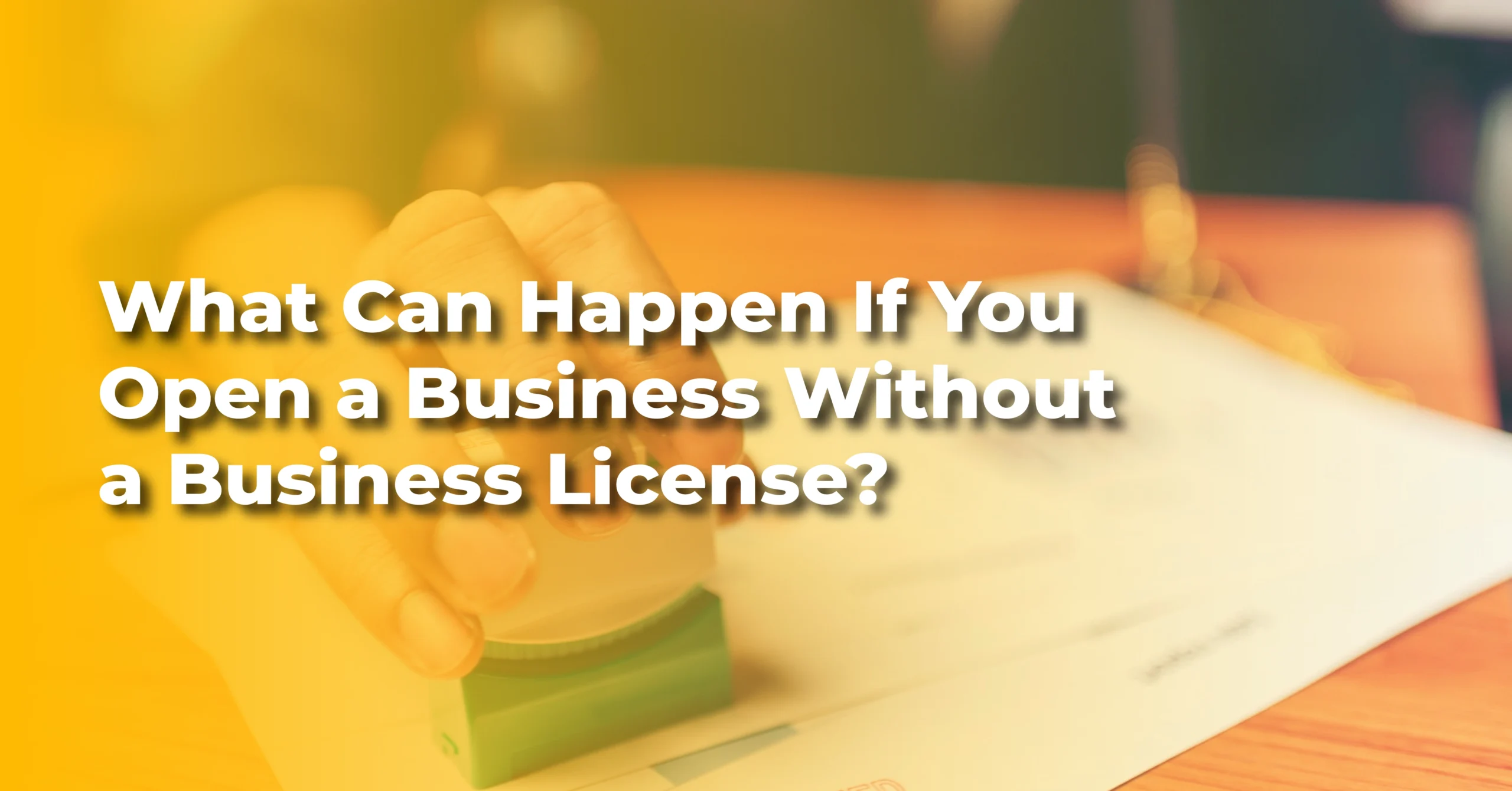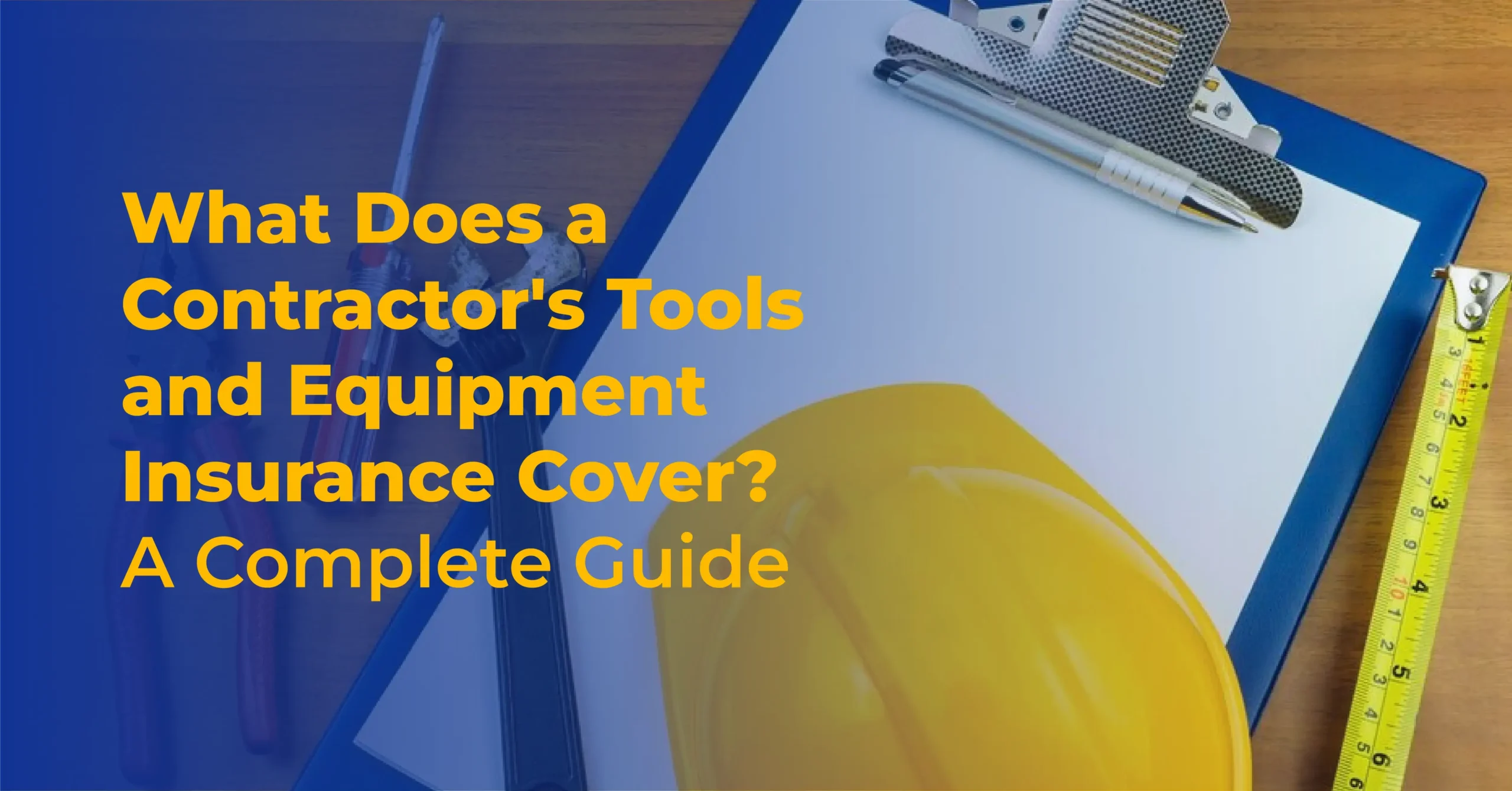Starting a business can be exciting, and you’re usually thinking about the future, but not what you need to do first. Failing to obtain the proper licenses can have serious consequences. From hefty fines and legal penalties to loss of customer confidence and possible closure, operating without a business license isn’t worth the risk. Understanding these consequences can help you protect your business and ensure long-term success.
Your business can be shut down if you operate without a license. You may be fined and forced to pay additional fees. An unhappy customer can lead to a lawsuit or loss of reputation because of all the consequences.
Beyond the risk of fines, missing a business license audit can have severe consequences, particularly in the construction industry where compliance is heavily monitored.
Fines and Penalties
Remember that each business requires a different type of license; a construction company needs to operate under a different license than someone who works remotely because their risks are lower. The law applies differently to each business.
Florida, like all states, regulates professions and occupations. Most professions require a license to operate legally, and depending on what you do, your penalty can be very different. For example, if the city finds out and calculates the fine based on, say, two percent of your last year’s revenue, a seemingly affordable license renewal can suddenly become a five- or even six-figure penalty.
Not having a business license can result in anything from a fine to a complete shutdown. Operating without a license is illegal and can lead to costly consequences. In some cases, the penalty is just a flat fee, which may not seem like a big deal. But in other areas, fines are based on a percentage of your company’s revenue while you were unlicensed-that’s when things get serious. Imagine running a small contracting business and inadvertently failing to meet licensing requirements. Even if it wasn’t intentional, it could quickly become a costly and stressful problem. That’s why it’s so important to be compliant from the start.
Lawsuits and Loss of Reputation
If your business faces a lawsuit, you may be able to pay a fine and continue operating, but not every case is the same-you could also face legal action. While not every dissatisfied customer will sue, having the right coverage will ensure that you’re protected if they do.
If your business is sued, whether over a contract issue or an injury claim, and it turns out that you don’t have the right licenses, a judge could rule against you on the spot, regardless of the details of the case. Lawsuits are not only a financial drain on any business, but you also waste a lot of time on paperwork and the mental drain of thinking about what might happen. All of this can be avoided if you’re licensed.
Recovering from a lawsuit is possible, but avoiding one in the first place is always the best strategy. Customers want to trust the companies they work with and imagine finding out that you worked with someone who was fined for not having the proper permits, or that the contractor you hired lost his license – it’s likely to make you think twice about working with them again. Reputations are built on consistency, and non-compliance can be a major setback that’s hard to recover from.
Possibility of Shutdown
When starting a business, the goal is to make it profitable and continually improve, but success requires following essential steps. In some cases, businesses can be forced to shut down if the state discovers they are operating without a license.
That’s not just a possibility—if an employee gets injured while your business is unlicensed, serious consequences could follow. Just by looking at real work scenarios, you could be shut down in as little as 2 months.
If a small business ignores its license renewal notice for too long, authorities can step in within 60 days and shut down operations. This can trigger a domino effect—every day closed means lost revenue, accumulating fines, and the challenge of reinstating the license. The financial strain and operational setbacks could ultimately put the entire business at risk.
In some cases, once the license is obtained, the business is free to reopen. But in some cases, a business may have to wait out a mandatory probationary period, or worse, a city may refuse to license the business. This is why licenses matter – they help protect your business, your livelihood, and the people who depend on it.
What are the Differences Between Contractors and Subcontractors in Business Licensing
Both contractors and subcontractors play vital roles in construction, but their licensing requirements can differ based on their responsibilities and legal obligations.
A contractor oversees the entire project, managing subcontractors and ensuring compliance with safety and legal standards. They manage the entire job, hire subcontractors, and make sure the work is done up to code. Contractors are required to hold a state license to work in construction, and they should also meet insurance and workers’ compensation requirements. They are responsible for ensuring that all work (including subcontractors) is done within legal and safety standards.
A subcontractor is hired by the contractor to perform specific tasks within a project. Some projects require a specific license, such as HVAC, roofers, electricians or even painters. Sometimes the subcontractor works under the contractor’s license and their needs; and when it comes to insurance and bonding requirements, it can vary, but it usually falls under the contractor’s scope. If they’re working on a small project, they may be able to complete the project without a license or if they’re under the general contractor’s license.
Why Licensing Matters
When you operate under a business license, you’re not only covered if your employee suffers a work-related injury, but you have the peace of mind of knowing that you’re not only helping them but that the outcome may be better for everyone.
Ensuring compliance with state and local laws is essential to protecting your business from legal and financial risk. It not only helps you avoid fines and penalties, but also enhances your credibility in the industry. Being properly licensed and compliant builds trust with customers, partners, and stakeholders, and positions your business for long-term success.
Conclusion
Having a business license provides peace of mind, allowing you to operate freely without the risk of legal complications. Investing in a license is far better than facing the costly consequences of non-compliance. Work accidents, dissatisfied clients, and unexpected events are beyond your control, but ensuring your business is properly licensed keeps you protected and prepared.
FAQS
- Does every business need a license?
Most businesses require some type of license to operate freely. Keep in mind that each industry requires a different type of license; home-based or online businesses don’t have as strict rules as the construction industry.
- Can I get insurance without a business license?
Insurers require a certified license to issue coverage. If you don’t have one, you won’t be able to get general or professional liability, workers’ compensation, PEO policies, etc.
- Do I need multiple licenses for different locations?
Yes, you do. If you operate in multiple cities or states, you may need separate licenses for each location to comply with local laws.
- Does a subcontractor always need a license to operate?
No, a subcontractor doesn’t always need a license to operate, but it depends on the trade, project, and state regulations.
- Can I reopen my business after a fine for not having a license?
Yes, you can reopen your business after being fined for operating without a license, but it depends on your local regulations and the severity of the violation.
- How much does a business license cost?
Costs vary by state, industry, and type of business. It can range from a small annual fee to more substantial costs for regulated industries such as construction or finance.
Let’s Discover More About Litespeed Blogs
8 Tips to Make Collecting Certificates of Insurance




